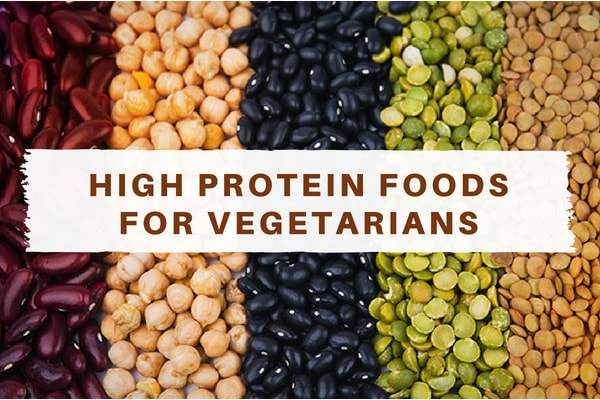A balanced vegetarian diet is essential for maintaining optimal health, and protein plays a crucial role in this equation. Whether you’re a seasoned vegetarian or someone exploring plant-based options, incorporating organic, high-protein foods can significantly enhance your overall well-being. These nutrient-dense foods not only provide essential amino acids but also support muscle growth, repair, and overall metabolic health. Let’s explore a variety of organic options that can easily be integrated into your daily meals to help you achieve your health goals.
1. Quinoa
Quinoa, often referred to as a superfood, is a complete protein source, meaning it contains all nine essential amino acids. Originating from the Andean region of South America, quinoa has gained popularity worldwide due to its nutritional value and versatility. It’s naturally gluten-free and packed with fiber, vitamins (such as B-vitamins), minerals (including iron and magnesium), and antioxidants. Quinoa can be enjoyed as a base for salads, soups, or as a side dish in place of rice.
2. Lentils
Lentils are a staple in many vegetarian diets for their high protein content and versatility in cooking. They come in various types, including green, red, and black, each offering its unique texture and flavor profile. Lentils are rich in fiber, folate, iron, and other essential nutrients. They cook relatively quickly compared to other legumes and can be used in soups, stews, curries, and salads, providing a hearty and nutritious addition to any meal.
3. Chickpeas (Garbanzo Beans)
Chickpeas are another excellent source of plant-based protein and are widely used in Mediterranean and Middle Eastern cuisines. They are rich in fiber, which promotes digestive health, and contain vitamins and minerals such as folate, phosphorus, and zinc. Chickpeas can be roasted for a crunchy snack, pureed into hummus, or added to salads, soups, and curries for a satisfying protein boost.
4. Tofu
Tofu, made from soybeans, is a versatile and complete protein source commonly used in vegetarian and vegan diets. It’s rich in calcium, iron, and magnesium, essential for bone health and overall well-being. Tofu comes in various textures—silken, soft, firm, and extra-firm—making it suitable for different culinary applications. It can be stir-fried, grilled, baked, or blended into smoothies and desserts, offering a creamy and protein-rich addition to a variety of dishes.
5. Greek Yogurt
Greek yogurt is a dairy option for vegetarians seeking high-protein foods. Compared to regular yogurt, Greek yogurt undergoes a straining process that removes whey, resulting in a thicker consistency and higher protein content. It’s also rich in probiotics, which support gut health and immune function. Choose organic Greek yogurt to avoid artificial additives and hormones, and enjoy it as a standalone snack, mixed with fruits and nuts, or as a base for smoothies and dips.
6. Edamame
Edamame are young, green soybeans harvested before they fully mature. They are rich in protein, fiber, vitamins (such as vitamin K and folate), and minerals (including manganese and iron). Edamame can be steamed or boiled and enjoyed as a nutritious snack, added to salads, stir-fries, soups, or incorporated into sushi rolls for an extra protein punch.
7. Seeds (Chia, Hemp, Flax)
Seeds are nutrient-dense powerhouses packed with protein, healthy fats, fiber, vitamins, and minerals. Chia seeds, hemp seeds, and flaxseeds are particularly rich in omega-3 fatty acids, which are beneficial for heart health and inflammation reduction. They can be sprinkled on yogurt, oatmeal, or salads, added to smoothies, or used in baking for an added nutritional boost. Incorporating a variety of seeds into your diet provides essential nutrients that support overall health and well-being.
8. Nuts
Nuts, such as almonds, walnuts, pistachios, and cashews, are not only delicious but also rich in protein, healthy fats, vitamins (including vitamin E), and minerals (such as magnesium and selenium). They make for a convenient and satisfying snack option and can be added to salads, stir-fries, granola, or enjoyed on their own. Nuts provide sustained energy and promote satiety, making them an excellent choice for maintaining a balanced diet.
9. Spirulina
Spirulina is a blue-green algae known for its exceptional nutritional profile. It’s one of the richest sources of plant-based protein, containing all essential amino acids, vitamins (including vitamin B12), minerals (such as iron and calcium), and antioxidants. Spirulina is available in powder or tablet form and can be easily incorporated into smoothies, juices, or water for a potent protein and nutrient boost. Its immune-boosting properties and detoxifying effects make it a valuable addition to vegetarian diets.
10. Hemp Products
Hemp seeds, hemp protein powder, and hemp milk are derived from the hemp plant and are excellent sources of plant-based protein. They are also rich in essential fatty acids, particularly omega-3 and omega-6, which are crucial for brain health, cardiovascular function, and inflammation management. Hemp products can be used in baking, smoothies, cereals, or enjoyed on their own as a nutritious snack. Opt for organic hemp products to ensure purity and avoid contaminants.

